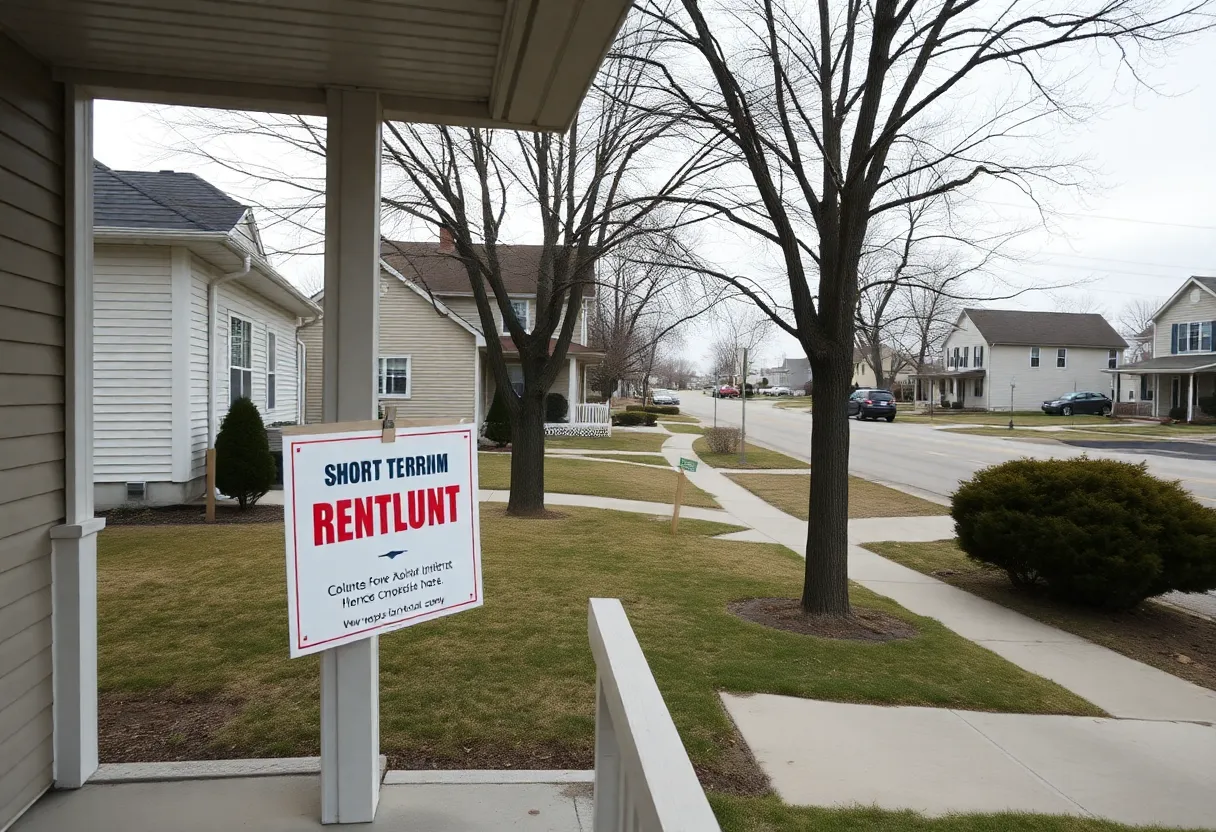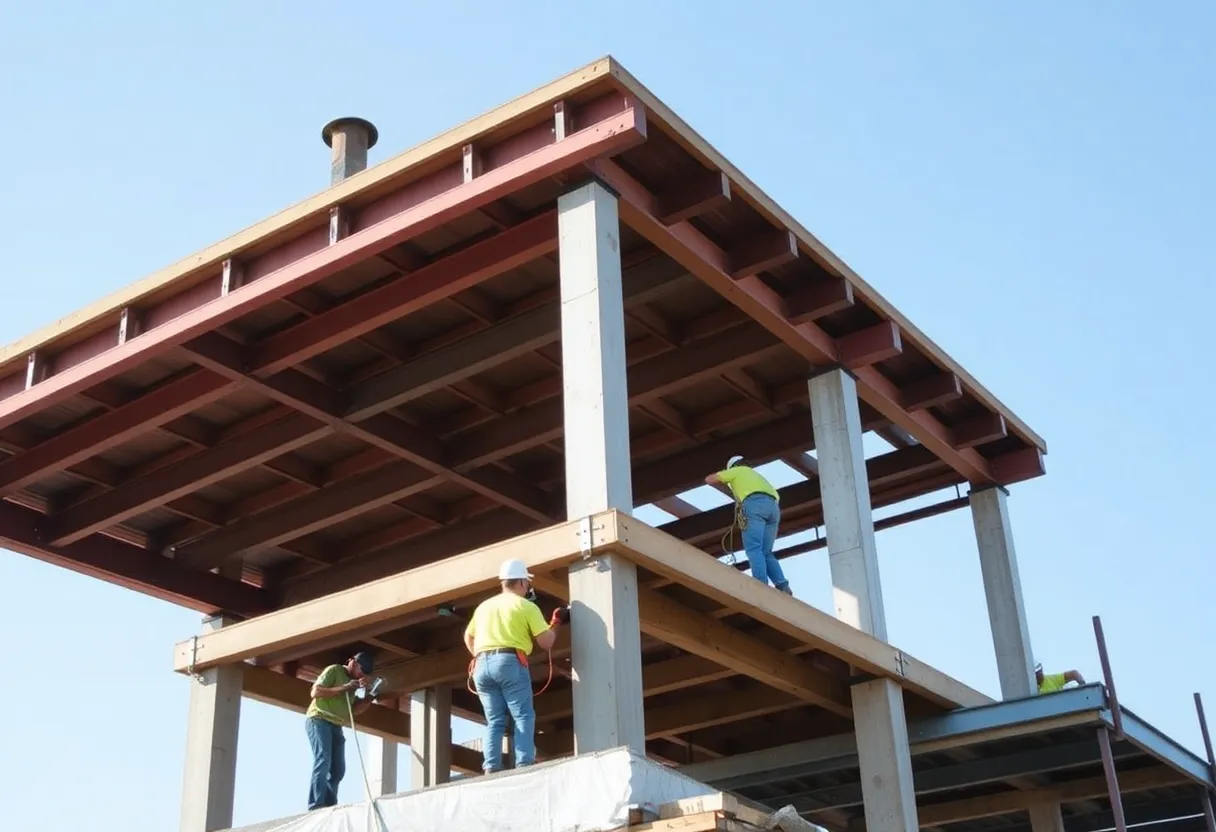DuPage County, Illinois, October 13, 2025
News Summary
DuPage County officials will consider a zoning text amendment to allow and regulate short‑term rentals in unincorporated areas, introducing mandatory registration, annual inspections, an occupancy limit of five unrelated people and a yearly fee. Fee revenues would be placed into a county housing fund to support low‑interest loans and construction financing for long‑term housing. The report also highlights a $136 million sale of a 640‑unit Naperville complex, $124 million in financing for a 334‑unit Wheaton rental project, and a state‑backed emergency rental grant program offering up to $25,000 for qualifying households.
DuPage County to Vote on Annual Short‑Term Rental Rules; Big Naperville Sale, Wheaton Financing and Rental Help Also in Focus
County leaders will take a first formal step Tuesday on a plan to allow and regulate short‑term rentals in unincorporated DuPage County on an annual basis. The proposal would add a registration and annual inspection requirement, impose a yearly fee, set an occupancy limit and create a fund for long‑term housing work from the fees collected.
What the board will consider
The proposed zoning change would permit short‑term residential rentals that were previously not allowed in unincorporated areas while setting clear rules for owners and operators. Officials estimate there are roughly 65 to 300 short‑term listings active in the county at any given time, with many cases coming to light through nuisance or damage complaints from neighbors.
Key requirements in the proposal include mandatory registration, an annual inspection to check compliance with building, health, stormwater and zoning codes and an annual fee that the county would set later. Short‑term rentals would be limited to no more than five unrelated people occupying a property at once, though owners could request a temporary exception through a special event permit process.
How fee money would be used
Funds from short‑term rental fees would be placed into a county housing fund to support long‑term housing strategies. The plan calls for those funds to be available for low‑interest loans, construction loans and other tools to expand affordable housing. County leaders have already eased some zoning rules as part of broader work to increase housing choices and announced a separate plan to set aside $5 million from a future surplus to launch a down‑payment help program for first‑time buyers.
Inspections and enforcement
Annual inspections would ensure properties meet county building and health codes, stormwater rules and all applicable state and federal statutes or codes. Owners who want to host larger gatherings with more than five unrelated guests would have to apply for a special event permit and provide details to the county’s development committee.
Major Naperville apartment sale
A New Jersey investor paid $136 million for a 640‑unit apartment complex on about 34 acres west of Chicago. The buyer financed the purchase with a loan of just over $90.8 million. The property, completed in the 1980s and made up of 39 two‑story buildings, had a vacancy rate of about 6.6% and asking rents averaging about $1,879 per unit at the time of the sale.
That transaction ranks among the largest suburban multifamily sales in recent years and reflects a broader trend: rent growth in the Chicago region has been driven higher by a slowdown in new apartment construction, making suburban assets attractive to big investors.
Wheaton project gets financing
A local developer secured roughly $124 million to move forward with a seven‑story, 334‑unit rental building in downtown Wheaton. Financing includes an $84 million construction loan and about $40 million of institutional equity. The project sits within walking distance of a commuter rail station and includes ground floor retail space leased to a local cafe. Construction is under way and the development is expected to be completed in the first quarter of 2027.
Market observers say the ability to win large loans and equity partners shows investor confidence in transit‑oriented apartment projects in the suburbs, where many people remain renters longer amid high borrowing costs.
Rental assistance for residents behind due to COVID
DuPage County is working with the state housing agency to help qualifying households receive emergency rental grants of up to $25,000. The assistance can cover up to 15 months of unpaid rent for the period June 2020 through August 2021. Tenants must apply with their landlords because grant payments go directly to the housing provider. Applications and required document lists are available online via the program portal, and a program email and phone line provide help for applicants.
Why it matters
The short‑term rental proposal aims to bring properties into a regulated framework while generating revenue for housing programs. Large apartment sales and major construction loans show steady investor support for suburban rental housing, driven by strong rent gains and limited new supply. The rental assistance program is a safety net to keep households housed and to stabilize landlords’ income streams after pandemic disruptions.
Frequently Asked Questions
1. What is the board voting on?
The county board will vote on a text amendment to allow and regulate short‑term rentals in unincorporated areas. If approved, officials will draft a formal ordinance that spells out registration, inspection, fee and enforcement details.
2. Who must register and be inspected?
Owners of short‑term rental units operating in unincorporated DuPage County would need to register their properties and submit to annual inspections to confirm compliance with building, health, stormwater and zoning rules.
3. How will fee money be used?
Fees collected from short‑term rentals would go into a county housing fund to support low‑interest loans, construction financing and other programs aimed at increasing affordable housing options.
4. What limits would apply to guests?
Under the plan, no more than five people unrelated by blood or marriage would be allowed to stay in a short‑term rental at once. Property owners could request a temporary special event permit to host more guests for a limited time.
5. Who bought the Naperville complex and what are the basics?
An investor purchased a 640‑unit complex for $136 million. The property has multiple low‑rise buildings, was completed in the 1980s and had average asking rents near $1,879 per unit when it changed hands. The purchase was financed with a mortgage of just over $90.8 million.
6. How do tenants apply for rental assistance?
Tenants and landlords should use the state program portal to apply and submit required documents. Grants cover unpaid rent from June 2020 through August 2021 and are paid directly to landlords. Program email and phone support are available for questions.
Key features at a glance
| Topic | Key facts | Next steps / Timeline |
|---|---|---|
| Short‑term rental rules | Would allow short‑term rentals in unincorporated areas; require registration, annual inspections and a yearly fee; occupancy limit of five unrelated people; special event permits possible. | County board vote on text amendment Tuesday; if approved, officials will draft an ordinance and set the fee later. |
| Naperville apartment sale | 640 units sold for $136 million; financed with a roughly $90.8 million loan; property built in the 1980s; asking rents near $1,879 per unit; 6.6% vacancy. | Ownership transferred; no public timeline for changes to the property announced. |
| The Faywell — Wheaton | 334‑unit, seven‑story project secured about $124 million in financing (construction loan + equity); transit‑oriented site with ground floor retail; expected delivery Q1 2027. | Construction under way; completion projected first quarter 2027. |
| Rental assistance (IHDA) | Grants up to $25,000 covering up to 15 months of unpaid rent from June 2020–Aug 2021; landlords must receive payment directly. | Applications available via the program portal; applicants can contact program email or phone for help. |
For program applications and detailed eligibility rules, use the official program portal at https://ilrpp.ihda.org or contact the program help address at [email protected] or phone (866) 454‑3571.
Deeper Dive: News & Info About This Topic
Additional Resources
- Daily Herald: DuPage County looks to regulate short-term rental properties
- Wikipedia: Short-term rental
- CoStar: Apartments west of Chicago sell for $136 million
- Google Search: Naperville apartment sale $136 million 2025
- Crain’s Chicago Business: Downtown Wheaton’s Faywell apartments land financing
- Google Scholar: transit-oriented development Wheaton Faywell
- Daily Herald: Glen Ellyn cracks down on short-term rentals
- Encyclopedia Britannica: short-term rental
- Positively Naperville: DuPage County offers rental assistance program
- Google News: DuPage County rental assistance IHDA ILRPP
Author: Construction FL News
The FLORIDA STAFF WRITER represents the experienced team at constructionflnews.com, your go-to source for actionable local news and information in Florida and beyond. Specializing in "news you can use," we cover essential topics like product reviews for personal and business needs, local business directories, politics, real estate trends, neighborhood insights, and state news affecting the area—with deep expertise drawn from years of dedicated reporting and strong community input, including local press releases and business updates. We deliver top reporting on high-value events such as the Florida Build Expo, major infrastructure projects, and advancements in construction technology showcases. Our coverage extends to key organizations like the Associated Builders and Contractors of Florida and the Florida Home Builders Association, plus leading businesses in construction and legal services that power the local economy such as CMiC Global and Shutts & Bowen LLP. As part of the broader network, including constructioncanews.com, constructionnynews.com, and constructiontxnews.com, we provide comprehensive, credible insights into the dynamic construction landscape across multiple states.





